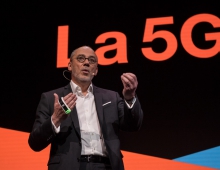
Ericsson Agrees to Pay Over $1 Billion to Settle Corruption Probes
Ericsson has agreed to pay total penalties of more than $1 billion to resolve the U.S. government’s investigation into violations of the Foreign Corrupt Practices Act (FCPA) arising out of the company’s scheme to make and improperly record tens of millions of dollars in improper payments around the world.
This includes a criminal penalty of over $520 million and approximately $540 million to be paid to the U.S. Securities and Exchange Commission (SEC) in a related matter. An Ericsson subsidiary on Friday pleaded guilty today for its role in the scheme.
Ericsson entered into a deferred prosecution agreement with the U.S. Department of Justice in connection with a criminal information filed today in the Southern District of New York charging the company with conspiracies to violate the anti-bribery, books and records, and internal controls provisions of the FCPA. The Ericsson subsidiary, Ericsson Egypt Ltd, pleaded guilty today in the Southern District of New York to a one-count criminal information charging it with conspiracy to violate the anti-bribery provisions of the FCPA. Pursuant to its agreement with the department, Ericsson has committed to pay a total criminal penalty of $520,650,432 within 10 business days of the sentencing hearing, and has agreed to the imposition of an independent compliance monitor.
According to admissions by Ericsson, beginning in 2000 and continuing until 2016, the Company conspired with others to violate the FCPA by engaging in a longstanding scheme to pay bribes, to falsify books and records and to fail to implement reasonable internal accounting controls. Ericsson used third party agents and consultants to make bribe payments to government officials and/or to manage off-the-books slush funds. These agents were often engaged through sham contracts and paid pursuant to false invoices, and the payments to them were improperly accounted for in Ericsson’s books and records. The resolutions cover the Company’s criminal conduct in Djibouti, China, Vietnam, Indonesia and Kuwait.
Between 2010 and 2014, Ericsson, via a subsidiary, made approximately $2.1 million in bribe payments to high-ranking government officials in Djibouti in order to obtain a contract with the state-owned telecommunications company valued at approximately €20.3 million to modernize the mobile networks system in Djibouti. In order to effectuate the scheme, an Ericsson subsidiary entered into a sham contract with a consulting company and approved fake invoices to conceal the bribe payments. Ericsson employees also completed a draft due diligence report that failed to disclose the spousal relationship between the owner of the consulting company and one of the high-ranking government officials.
In China, between 2000 and 2016, Ericsson subsidiaries caused tens of millions of dollars to be paid to various agents, consultants and service providers, a portion of which was used to fund a travel expense account in China that covered gifts, travel and entertainment for foreign officials, including customers from state-owned telecommunications companies. Ericsson used the travel expense account to win business with Chinese state-owned customers. In addition, between 2013 and 2016, Ericsson subsidiaries made payments of approximately $31.5 million to third party service providers pursuant to sham contracts for services that were never performed. The purpose of these payments was to allow Ericsson’s subsidiaries in China to continue to use and pay third party agents in China in contravention of Ericsson’s policies and procedures. Ericsson knowingly mischaracterized these payments and improperly recorded them in its books and records.
In Vietnam, between 2012 and 2015, Ericsson subsidiaries made approximately $4.8 million in payments to a consulting company in order to create off-the-books slush funds, associated with Ericsson’s customers in Vietnam, that were used to make payments to third parties who would not be able to pass Ericsson’s due diligence processes. Ericsson knowingly mischaracterized these payments and improperly recorded them in Ericsson’s books and records. Similarly, in Indonesia, between 2012 and 2015, an Ericsson subsidiary made approximately $45 million in payments to a consulting company in order to create off-the-books slush funds, and concealed the payments on Ericsson’s books and records.
In Kuwait, between 2011 and 2013, an Ericsson subsidiary promised a payment of approximately $450,000 to a consulting company at the request of a sales agent, and then entered into a sham contract with the consulting company and approved a fake invoice for services that were never performed in order to conceal the payment. The sales agent provided an Ericsson employee with inside information about a tender for the modernization of a state-owned telecommunications company’s radio access network in Kuwait. An Ericsson subsidiary was awarded the contract valued at approximately $182 million; Ericsson subsequently made the $450,000 payment to the consulting company and improperly recorded it in its books.
As part of the deferred prosecution agreement, Ericsson has agreed to continue to cooperate with the department in any ongoing investigations and prosecutions relating to the conduct, including of individuals; to enhance its compliance program; and to retain an independent compliance monitor for three years.
The department reached this resolution with Ericsson based on a number of factors, including the Company’s failure to voluntarily disclose the conduct to the department and the nature and seriousness of the offense, which included FCPA violations in five countries and the involvement of high-level executives at the company.
Börje Ekholm, President and CEO, says: “I am upset by these past failings. Reaching a resolution with the US authorities allows us to close this legacy chapter. We can now move forward and build a stronger company.
Carl Mellander, chief financial officer, said the amount was fully covered by a provision the company made in the third quarter and added it would not impact any financial targets.
“While the amount for the settlement today is significant I can confirm that we will be able to manage the associated cash outflow with available funds,” he told the conference call.





















